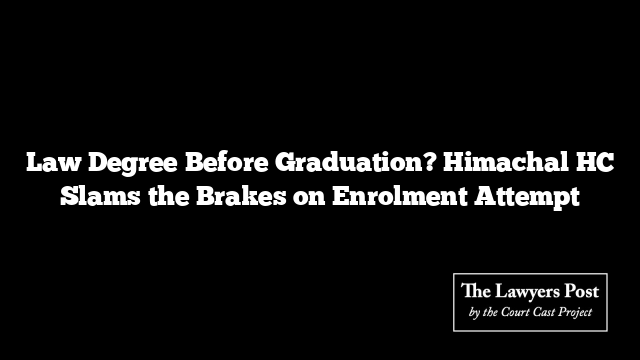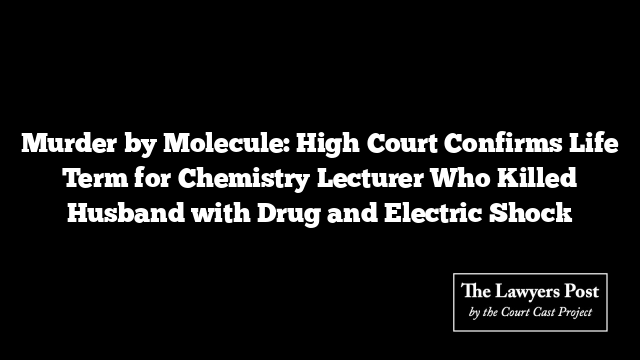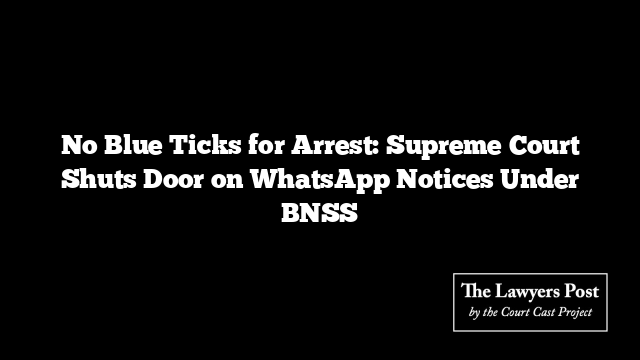In a judgment that drew a hard line between eligibility and ambition, the Himachal Pradesh High Court has denied enrolment to a man who tried to join the legal profession after jumping the academic gun.
A Division Bench comprising Chief Justice GS Sandhawalia and Justice Ranjan Sharma found that Inderpal Singh had secured admission to a three-year LL.B programme before actually finishing his undergraduate degree—a move the Court unequivocally labeled as a breach of legal education norms.
Citing the Advocates Act and the 2008 Rules of Legal Education, the judges observed that admission to a professional law course without a prior degree is “not just irregular but outright invalid.”
Singh had failed a paper in his final undergraduate year in 2014 but managed to gain provisional admission to a law college that same year. He promised the college that if he couldn’t complete his graduation, they could cancel his admission. Despite clearing the failed paper in mid-2015 and completing his law degree in 2017, his attempt to enrol with the Bar Council of Himachal Pradesh hit a dead end.
The Bar Council refused to accept his application, stating that his admission was obtained in violation of the rules. A single-judge bench had already upheld this position last year. Singh then took the matter to the Division Bench, which has now firmly shut the door.
“The prescribed standards cannot be diluted merely to ratify a known and admitted wrong,” the High Court ruled, stressing that bending the rules for convenience would undermine the entire structure of legal education.
Legal representation lined up on both sides like a courtroom drama. Senior Advocate Ajay Sharma and Advocate Atharv Sharma represented Singh, while the Bar Council fielded Senior Advocate Sunil Mohan Goel and Advocate Raman Jamalta. The university and law college also had their own counsel, but the verdict left no room for maneuver.
For Singh, the lesson was harsh but clear: in the law, shortcuts often lead to dead ends.





